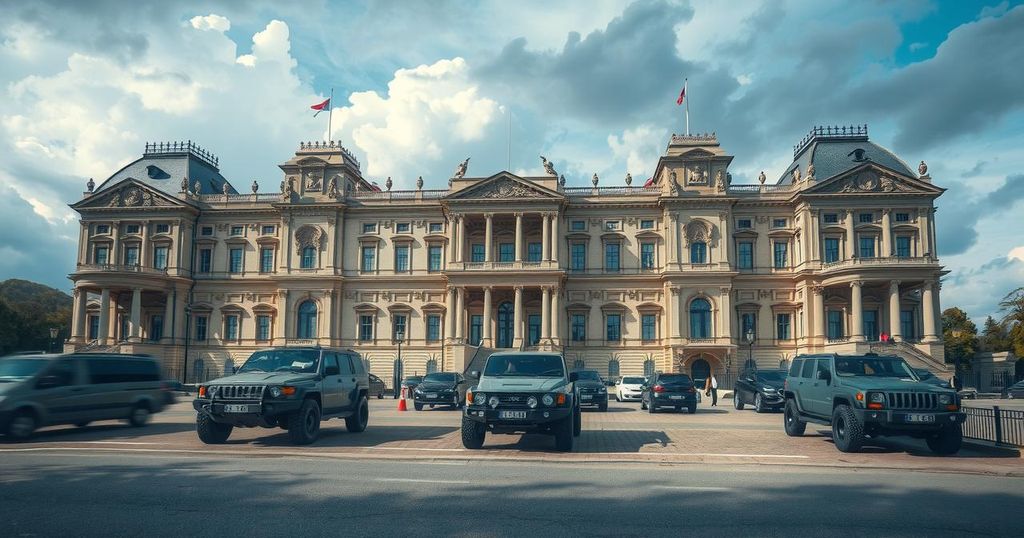The Sudanese army has regained control of the presidential palace in Khartoum from the RSF after nearly two years of conflict. This marks a significant military advancement amidst escalating violence. Both factions continue to struggle for strategic control, contributing to a severe humanitarian crisis in the region.
The Sudanese army has successfully retaken the presidential palace in Khartoum from the rival paramilitary group known as the Rapid Support Forces (RSF). Military leaders confirmed the recapture, and social media clips revealed jubilant soldiers celebrating with cheers and prayers. This development marks a significant shift in the ongoing conflict, which commenced nearly two years ago when the RSF first gained ground in the capital.
The RSF has maintained control over most of Khartoum and parts of western Sudan since the onset of hostilities. The recent reclamation of the capital signifies a major win for the Sudanese Armed Forces, which has also made recent territorial advancements in central Sudan. Witnesses reported aerial assaults near the Republican Palace, indicating escalating violence in the area.
In a recorded message, RSF commander Mohamed Hamdan Dagalo, also known as Hemedti, pledged to protect the presidential palace and adjoining territories under his command, threatening further incursions into northern cities. Efforts toward peace have repeatedly faltered, and both factions remain committed to continuing their struggle for strategic locations.
The ongoing conflict in Sudan has led to what the United Nations describes as the world’s largest humanitarian crisis, with grave human rights violations reported against both the RSF and the Sudanese army. This situation underscores the dire need for a resolution to the prolonged civil strife.
The Sudanese army’s recapture of the presidential palace in Khartoum represents a crucial turning point in a conflict that has lasted nearly two years. The RSF’s vow to retain control, amidst ongoing violence and humanitarian crises, highlights the pressing need for resolution. The advancements made by the armed forces also reflect a dynamic shift in the control of critical areas within Sudan, stressing the urgency for effective peace efforts.
Original Source: www.bbc.com






